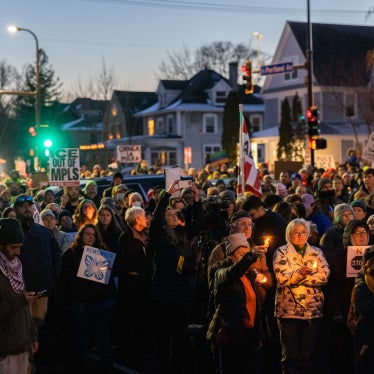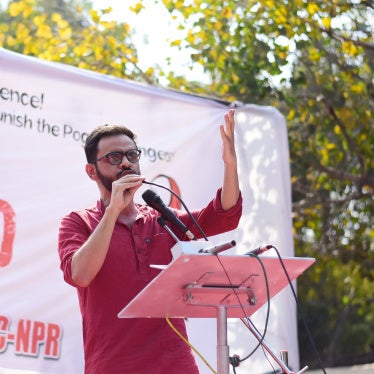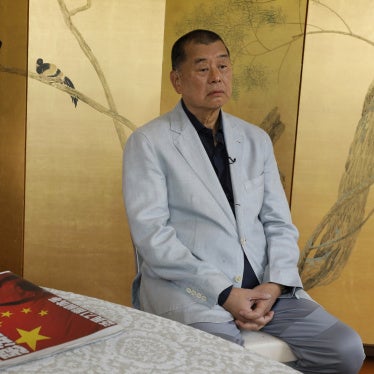|
Commentary
Online Censorship laws needs reform
Published in:
The Hoot
The horrific January 7 attack on the French satirical magazine Charlie Hebdo in Paris has led to a raging debate worldwide on the limits to freedom of expression and opinion. In India, a country of many religions and faiths, where tolerance and free expression have long struggled to find common ground, the attack has sparked a crucial discussion.
Citing law and order concerns, police in Mumbai reportedly responded to the attack by blocking 650 posts and pages on a social networking site for uploading controversial cartoons from the magazine. While there have been subsequent reports putting the number of sites blocked at just three or four, Mumbai police’s social media lab, set up to detect social media content that is offensive or could threaten public order refused to divulge the exact number. This follows just weeks after a December 17 order by the government to block 32 websites including video sharing sites such as vimeo and dailymotion for allegedly posting “jihadi propaganda.” Some of these websites were blocked wholesale, despite the fact that the vast majority of content they host -- potentially millions of news and other videos -- were not deemed a threat to security. Following pushback, the government started lifting blocks on some sites.
The authorities have become increasingly concerned about social media be used to spread terrorist propaganda or to incite communal strife. They are not alone in this regard. But laws in India enable authorities to apply censorship controls to block large amounts of content in secrecy without adequate oversight or a demonstration of necessity, and in a disproportionate manner.
For example, Section 69A of the Information Technology (IT) Act allows for blocking of online content on certain grounds such as if it is in the interest of public order or sovereignty and integrity of India. The Information Technology (Procedures and Safeguards for blocking for Access of Information by Public) Rules, 2009 lay down theprocedure for imposing the rules. The Indian Supreme Court is currently examining the constitutionality of these provisions along with several other provisions of the IT Act.
The rules for blocking provide little in way of rights safeguards or accountability for abuse. They do not require the author to be notified, and a notice is sent instead to the person or intermediary hosting the information with 48 hours to raise objections or respond. Leaked orders show that government authorities do not provide grounds for blocking content and also require that these orders be kept confidential. There is no provision to file an appeal. Failure to comply can result in fines or imprisonment.
Testing four major Indian Internet Service Providers in 2009-2010, the OpenNet Initiative found that when users attempted to access a blocked website, they received a “server not found” error page. Internet experts in India say this is still the case today. So, if you are an internet user, you may think there is a genuine server error instead of the government censoring that is really taking place.
Because of the secrecy surrounding the process, it is difficult to assess how much material in India is being blocked. In a written reply to the parliament in December 2013, the then minister for communications and information technology said the government had blocked 1,208 web addresses or URLs to comply with court orders. A Right to Information request filed by Software Freedom Law Center for copies of blocking orders as well as court orders was denied, citing the confidentiality clause under Rule 16. In February 2014, the minister told parliament that 62 URLs wereblocked in 2013 for “hosting objectionable information” with “potential to disturb” public order.
In addition, Rule 9 permits blocking using emergency measures. Under this, no notice is sent but a committee has to examine the order within 48 hours after blocking. The rules do not allow an opportunity to challenge the decision. Nor is there a clause allowing for the decision to be revoked after the emergency has passed. What constitutes an emergency is not defined either. Often, the government resorts to haphazard wholesale blocking of websites and content under this measure.
An essential safeguard in the normal blocking process is the review committee mandated to meet once every two months to examine all website blocking orders. But the workings of the committee are not public and lack transparency. An official from a popular social networking site alleged that the committee only examines whether procedure was followed, not the content for validity of the block itself.
In all, the blocking procedures allow far too much discretion to officials to decide when blocking access to content is necessary. The lack of procedural safeguards and channel to appeal these decisions only exacerbates the risk that blocking measures can be abused. Arbitrary shutting down of websites or taking down content limits an open public debate of ideas where moderate voices can counter the narrative of hate and intolerance.
One doesn’t have to approve of Charlie Hebdo’s content to recognize that a core element of the right to freedom of expression is the right to express opinions that offend, shock, or disturb -- and for others to criticize those views.
Jayshree Bajoria is a researcher at Human Rights Watch. You can follow her on twitter@jayshreebajoria.
Your tax deductible gift can help stop human rights violations and save lives around the world.
Most Viewed
-
November 25, 2019
A Dirty Investment

-
January 9, 2026
US: Minneapolis Killing by ICE Unjustified

-
March 29, 2021
“Everything I Have to Do is Tied to a Man”

-
November 12, 2018
“Shall I Feed My Daughter, or Educate Her?”

-
January 8, 2026
Iran: Authorities’ Renewed Cycle of Protest Bloodshed




